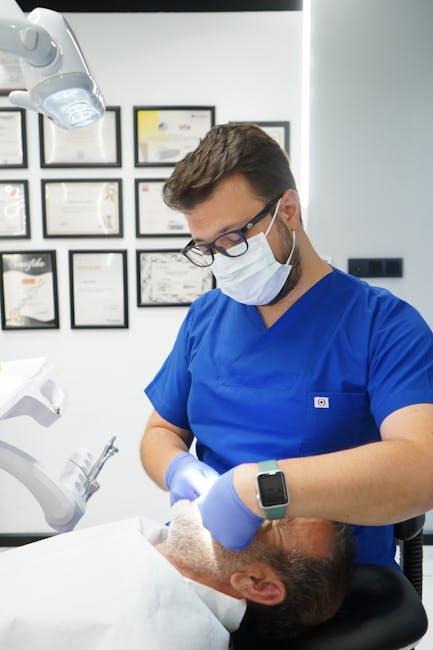
‘Turkey Teeth’ Are Leaving Brits Toothless and in Pain But UK Dentists Can’t Help
Dental tourism has been booming in recent years, especially with Brits traveling abroad to receive cosmetic dental treatments at a fraction of the UK prices. However, a growing number of patients who opted for the notorious ‘Turkey teeth’ procedures are now left toothless, experiencing severe pain, and facing an uphill battle to get help back home. In this article, we dive deep into the risks of prioritizing lower costs abroad, why UK dentists are often unable to fix these problems, and crucial advice for anyone considering dental work overseas.
What Are ‘Turkey Teeth’?
The term ‘Turkey teeth’ describes dental veneers, crowns, implants, or full-mouth restorations carried out by clinics in Turkey and similar destinations known for budget dental tourism. Many Brits are lured by low-cost packages promising Hollywood smiles for as little as one-fifth of the UK price.
While there are high-quality clinics in Turkey, many patients fall victim to inexperienced practitioners, substandard materials, or rushed work. The result? Permanent damage such as:
- Tooth decay under veneers
- Implant infections and failures
- Gum disease and receding gums
- Severe pain, swelling, and bite misalignment
- Complete tooth loss in worst cases
Why Are UK Dentists Struggling to Help?
Once patients return to the UK with complications, they often face a closed door from local dental professionals. UK dentists hesitate to treat ’Turkey teeth’ complications for several reasons:
- Lack of Information: Clinics abroad rarely provide detailed clinical notes or materials used, making diagnosis difficult.
- Complex Repairs: Poorly fitted crowns and implants may require removal, bone grafts, or reconstructive surgery.
- Legal and Liability Issues: UK dentists can’t take responsibility for correcting work done with unknown standards.
- Time and Cost: Fixing botched work can take several visits and thousands of pounds.
Consequently, many patients report feeling abandoned, with pain worsening and no clear treatment pathway.
Case Study: Emma’s Painful Journey
Emma, 38, traveled to Istanbul for a full smile makeover, paying just £2,500 instead of over £10,000 in the UK. Initially thrilled with her new look, within months she developed infections and discomfort. Upon returning home, she sought help from her UK dentist who advised complete removal of the implants and bone grafting — a treatment costing more than double her original dental bill abroad.
Emma’s experience highlights the hidden long-term cost and pain of opting for cheaper dental tourism, especially without thorough research.
Risks of Dental Tourism: What You Need to Know
| Aspect | Dental Tourism (e.g., Turkey) | UK Dental Treatment |
|---|---|---|
| Average Cost | £1,500 – £3,000 (full mouth) | £10,000+ |
| Risk of Complications | High to medium | Low (regulated environment) |
| Aftercare Availability | Limited on return home | Comprehensive ongoing support |
| Legal Protection | Minimal or none | Strong regulatory and legal protections |
Benefits of Dental Treatment in the UK
While the cost is higher, there are distinct advantages that protect your oral health in the long term:
- Regulated Practitioners: UK dentists are licensed and regularly inspected.
- Detailed Records and Transparency: You receive all necessary diagnostics and treatment records.
- Continuity of Care: Easy access to follow-ups, emergency services, and adjustments.
- Quality Materials and Standards: Use of certified equipment and implants with warranties.
Practical Tips for Safe Dental Tourism
If you’re determined to explore dental treatments abroad, consider these vital steps to avoid becoming another ‘Turkey teeth’ victim:
- Research Thoroughly: Look for verified clinics with strong patient reviews and accreditations.
- Check Dentist Credentials: Ensure your dentist is properly qualified and registered.
- Understand the Aftercare: Clarify what support or guarantees are offered post-treatment.
- Request Detailed Documentation: Ask for full treatment plans, materials lists, and X-rays.
- Consider a UK Dentist Consultation: Before traveling, get an opinion from your local dentist on your planned work.
- Avoid Bargain Deals: If the price seems “too good to be true,” it probably is.
Looking Ahead: Calls for Better Regulation
The rise in ‘Turkey teeth’ complications has urged UK dental bodies to advocate for better international cooperation to regulate dental tourism. Patients are encouraged to weigh cost savings against potential irreversible damage and long-term suffering.
Increased public awareness campaigns and government advice on safe dental tourism are essential to protect British patients from preventable misery and financial ruin.
Conclusion: Prioritize Your Health Over Costs
The allure of affordable and glamorous ‘Turkey teeth’ might be tempting, but many Brits are paying a heavy price—literally and physically. With painful complications and limited options upon returning home, it is crucial to prioritise quality, safety, and aftercare when considering dental treatment abroad.
Before making any decisions, consult your UK dentist, research clinics extensively, and think long-term about oral health. Remember, a healthy smile is priceless, and sometimes the cheapest option can end up costing you more than you bargained for.


